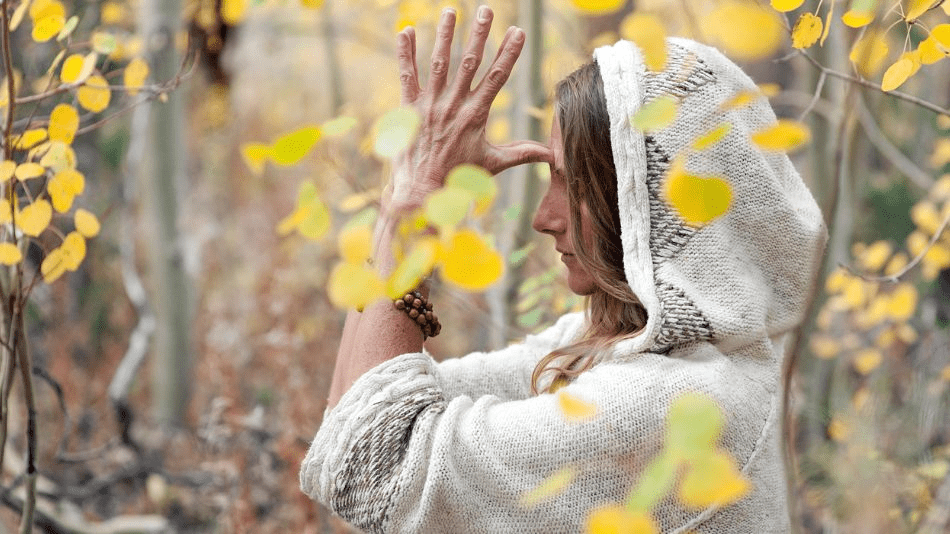
Self-Gratitude 101: What Is It and How to Practice
Curtis BradshawMost of us were raised to always say “thank you” as a means of expressing gratitude and conveying politeness. Given the reflective nature of the autumnal season, it's pertinent to dive deeper into the meaning of “giving thanks” and being thankful versus exuding self-gratitude.
What Is Self-Gratitude?
Gratitude is the conscious act of feeling grateful for tangible or intangible things. When done purposefully, it’s a mindfulness and self-care practice. The most straightforward definition is acknowledging ourselves as much as we may appreciate a gesture towards us or when things are going well in life. Simply put, it’s a process of recognition—always looking for the silver lining.
While we might be familiar with these definitions and concepts of gratitude, we often miss a lesser-known form—gratitude for oneself. Feeling gratitude for yourself requires additional conscious effort, which can present as being grateful for yourself, your life, and your surroundings.
Benefits of Practicing Self-Gratitude
It’s been suggested that people who consciously count their blessings tend to be more joyful and cope with stress better. Stress is linked to myriad wellness issues, so practicing gratitude as a means of self-care and wellness can be profound. Here are a few reasons to practice gratitude:
♦ Ground yourself
♦ Practice self-compassion
♦ Manage anxiety
♦ Control reactivity
♦ Have more authentic connections
♦ Feel more fulfilled

When it comes to self-gratitude, people will often appreciate the goodness in others while ignoring their own. This creates a false point of view and a feeling of division. Feeling appreciation for our own good is an essential part of growth. It asks us to engage our mind, body, and soul, which Tru Alchemy® is all about.
The concept does not imply ignoring disappointment, failure, or even burnout; it simply is a way to confront that with self-compassion. When we practice gratitude for ourselves, we take the time to recognize our everyday work and who we are as an individual. It’s a practice that can fill your own cup, readying you to support others.
How to Practice Self-Gratitude in Your Daily Life
Gratitude can be learned and honed. Here are some tips on how to practice gratitude:
Keep a Gratitude Journal
Journaling is a common therapeutic method that can help free your mind from cluttering and intrusive thoughts. Journaling uses different parts of your brain to access memories and emotions. When done over time, this can help provide, develop, and shift a new perspective. People who can find meaning and some good in a challenging situation often have higher resilience. This feeling can lead to a sense of purpose and belonging.
You can also benefit by reflecting on your writing and entries and finding renewed meaning. Re-reading your own words can help you when struggling to see the light in a given situation.
There are many ways to journal, but generally, you’ll just write down daily joys or positives. Write down "three good things" and identify the reason for them. You can also identify three things that you value about yourself. What is the impact of these things? Give yourself some credit for those contributions, however simplistic they may seem.

Write Thank You Notes to Others
Think about people who have inspired, nurtured, supported, and uplifted you. This is a way to build connections and take time to show gratitude more creatively or thoughtfully.
Engage in Mental Subtraction
Imagine what your life would look like if an event had not unfolded or occurred in that specific way. This helps you see a pattern and give a powerful sense of feeling blessed. We recommend you devote a few minutes to visualize what that might look like. It might be useful to write these ideas down so you can return to them and read them weekly.
Meditate on Daily Affirmations
A meditation focused on self-affirmation allows us to widen our embrace and our connection to ourselves and other beings. It promotes acceptance and self-compassion.
Final Thoughts
In the spirit of bountifulness this season, consider all the bountiful ways you are blessed. A scarcity feeling leads us to a negative mindset. Gratitude, on the other hand, is an emotion to cultivate and hopefully make a habit of. Just remember that practice and patience are as key as our intention.



